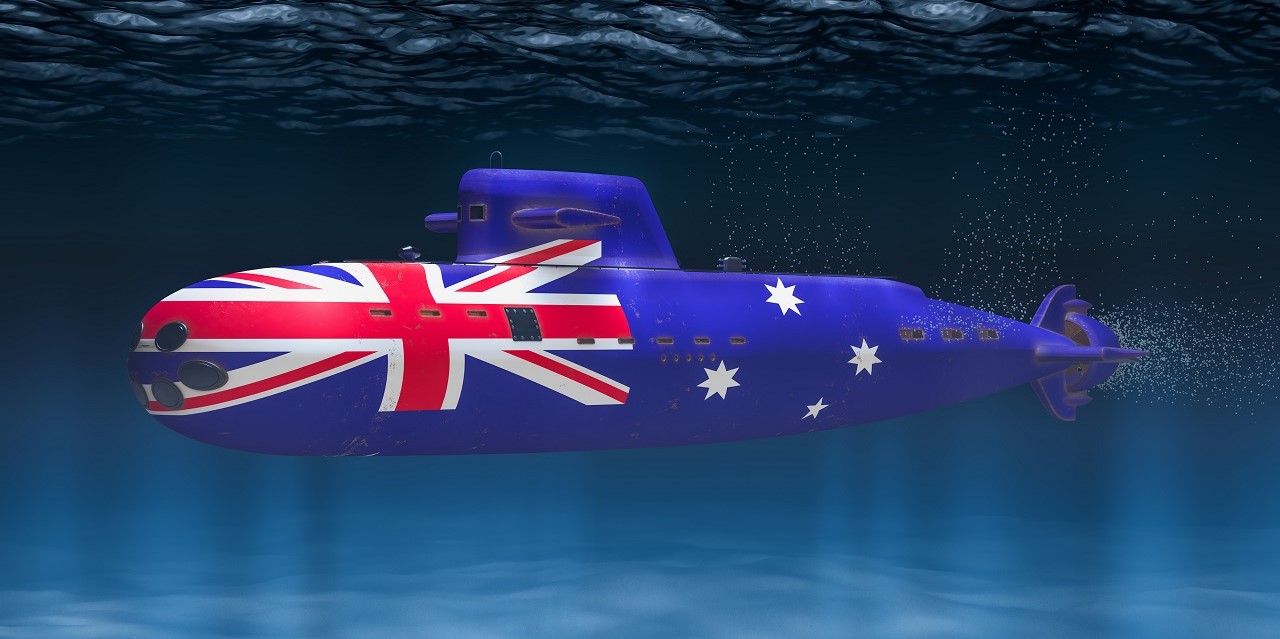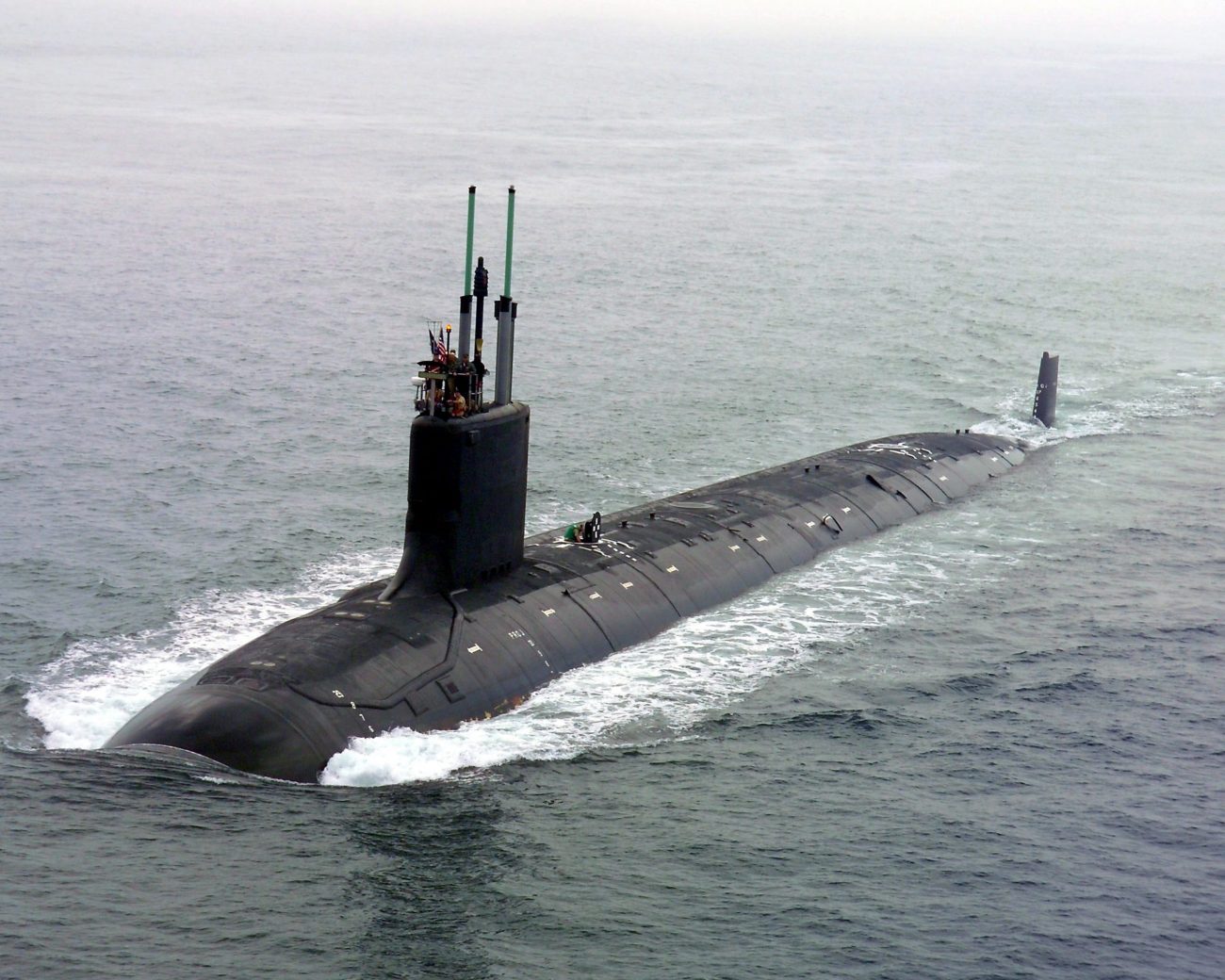Australia Flags Indians Over $368 Billion Nuclear Submarine Espionage Fears: Did “Qatar Fiasco” Play A Part?

AUKUS was hailed as Australia’s biggest defense agreement, one that could redefine the security architecture in the crucial Indo-Pacific region and challenge China’s rising belligerence.
The pact involved providing Australia with eight nuclear-powered submarines.
The Pillar-I involved Canberra buying 3–5 used Virginia-class SSNs from the U.S., and the Pillar-II involved developing and constructing a new SSN-AUKUS submarine class jointly by Australia and the United Kingdom, incorporating US technology, with deliveries to the Royal Australian Navy beginning in the early 2040s.
However, even four years after signing the over USD 368 billion pact, there is little progress on the crucial project.
Earlier in June, the Trump administration launched a formal review of the contract.
After months of uncertainty, US President Donald Trump finally endorsed the deal last month, assuring Canberra that “they’re getting them (SSNs).”
However, now a new worry is troubling Australia. The fear of spying by “adversary countries” on sensitive nuclear-propulsion technology can further delay the already-delayed project.
China-India Spying On AUKUS?
Australian media outlet The Australian has reported that Australia’s Defense Force has rejected one in ten applicants for AUKUS submarine work due to dubious foreign ties or security risks.
The highly classified nuclear submarine project employs strict vetting processes, turning away individuals with dual citizenship and suspicious links to China and India.
This affects the recruitment drive for the US$368 billion project, which aims to build a highly-skilled workforce of over 20,000 personnel, including engineers and technicians for nuclear submarine construction and maintenance.
Individuals with family, professional, or financial ties to these nations, particularly those who’re in some way connected to the armed forces or state intelligence agencies, are routinely flagged.
The article further notes that U.S.-imposed ITAR regulations further restrict access for non-citizens or those with overseas parentage from high-risk countries, such as China, exacerbating hiring challenges.
These reports followed Australian Security Intelligence Organisation (ASIO) Director-General Mike Burgess’s warning that foreign spy agencies are intensifying efforts to infiltrate AUKUS through job applications and online networks.
The tactics involve posting fake recruitment ads on social platforms like LinkedIn, and then trying to lure the applicants with a defense background to provide insider information on project timelines and technology specifications.
These fake recruitment ads target people associated with the AUKUS project and sometimes prompt them to unwittingly share sensitive details about the project’s timelines during the interview process.
Burgess underlined that nearly 7,000 people associated with the Australian defense sector have shared details of their work profiles online, and close to 400 have explicitly mentioned working on the AUKUS project, making them easy targets for adversarial countries.
Worryingly, ASIO has described the AUKUS project as a “magnet” for adversaries seeking to steal nuclear secrets.
In the past year alone, ASIO has flagged hundreds of applications and revoked clearances for individuals to work on the sensitive project.
Notably, this is not the first time that ASIO has sounded an alarm over foreign spying interest in the AUKUS project.
In a July 2025 speech, Burgess revealed that ASIO disrupted 24 major espionage plots over three years, many of which targeted AUKUS secrets, such as submarine designs and supply chains.
He also revealed that espionage is costing Australia US$12.5 billion yearly in stolen IP, with AUKUS as a prime target.
“Foreign intelligence services are proactive, creative and opportunistic in their targeting of current and former defence employees: relentless cyber espionage, in-person targeting and technical collection,” Burgess said.
The Virginia-class SSNs of the US are the latest and most advanced submarines in the US Navy.
While apart from the US, five more countries have mastered nuclear-powered submarines, among them the UK, France, Russia, China, and India, the Virginia-class SSNs of the US Navy are widely considered to be the most stealthy and most advanced submarines, making them a prime target of spying by the adversary countries.
However, Australian media reports specifically mention individuals with suspicious links to two countries: China and India.
While China has been routinely accused of spying and stealing military secrets by the US and its allies (for instance, Washington has accused China of stealing the F-35 design blueprints and copying them in its latest fifth-generation stealth aircraft, the J-35), it is the mention of India that is surprising, as New Delhi and Canberra are on friendly terms and such allegations, if accurate, can damage the burgeoning friendship between the two countries.

Is India Spying On AUKUS SSN Design Secrets?
India and Australia are not only on friendly terms but are also part of the QUAD, an informal alliance comprising the US, Australia, Japan, and India, formed to counterbalance China’s rising belligerence in the Indo-Pacific.
In fact, even as the Australian media reported that the Australian defense forces had flagged and barred individuals with dual citizenship and suspicious links to China and India, the navies of India and Australia are engaged in the Malabar exercise in Guam, along with those of the US and Japan.
While the media reports have vaguely mentioned individuals with suspicious links to China and India, it is important to note that India has already been embroiled in a controversy where eight former Indian Navy officials were sentenced to death in Qatar for spying on its submarine secrets.
In August 2022, eight former Indian Navy officials who were employed at Dahra Global Technologies and Consulting Services, a private defense consulting firm based in Qatar, were arrested and charged with passing sensitive documents to Israel.

After spending extended periods in solitary confinement, all eight were sentenced to death by a Qatari court in October.
Since Qatar has stringent laws against espionage and disclosing national secrets, the firm was shut down and its more than seventy-five Indian employees were asked to leave the country.
Dahra Global was advising Qatar’s navy on a program to obtain Italian-made submarines.
Even though India or its official agencies were not involved in any way, and all Indian people working with Dahra Global were working in their individual capacities, it became a major emotive issue in India, and ultimately, the Indian government had to intervene.
Even though India and Qatar are on friendly terms, the issue gave the Qatari government powerful leverage against the Indian government that could have been used in trade negotiations or to curry other geopolitical favours. After intense lobbying, Qatar finally released the eight former Indian Navy officials; however, details of the agreement were not made public.
Notably, just days before their release, India and Qatar signed a deal worth tens of billions of dollars that secured the export of Qatari liquefied natural gas to India until the end of 2048.
It was widely speculated that the LNG deal and the release of the former Indian Navy officials were linked.
The incident highlighted how even individuals linked to alleged spying activities in friendly foreign countries can create an uncomfortable situation for governments.
While no conclusions can be drawn at this stage based on a few media reports, the two incidents have striking parallels.
A country on friendly terms with India, a foreign government trying to purchase the latest submarine, and allegations of spying against Indian nationals.
The Indian and Australian governments must examine the reports; if the allegations are accurate, they could damage friendly relations between the two countries and even harm the US’s Indo-Pacific strategy and the QUAD alliance.
- Questions and Answers
- Opinion
- Motivational and Inspiring Story
- Technology
- Live and Let live
- Focus
- Geopolitics
- Military-Arms/Equipment
- Security
- Economy
- Beasts of Nations
- Machine Tools-The “Mother Industry”
- Art
- Causes
- Crafts
- Dance
- Drinks
- Film/Movie
- Fitness
- Food
- Games
- Gardening
- Health
- Home
- Literature
- Music
- Networking
- Other
- Party
- Religion
- Shopping
- Sports
- Theater
- Health and Wellness
- News
- Culture

